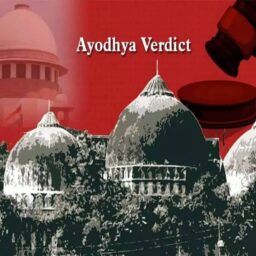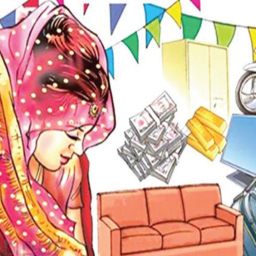INTRODUCTION
Alternative to imprisonment has become a demand of time in Bangladesh. To be rational, the traditional litigation system is no longer enough to meet the legal necessities of people. The learned lawmakers, judges, and legal experts have considered including an alternative option in the legal system for a long time. The probational system is the outcome of their willingness to add a liberal provision other than imprisonment while delivering the judgment. But of course, some criteria should be maintained while using this process. The Probation of Offenders Ordinance, 1960, has shown the guidelines regarding the matter. The Probation of Offenders Rules, 1971, inserted some other laws and regulations to supplement the Ordinance. But, it is a matter of regret that in case of implementation of the probational system, the willingness of the legal authorities, as well as the victims, are below the mark.
What is Probation?
In a general sense, probation is a way to punish an offender without captivating him in jail. It is done after imposing some conditions on the offenders. According to the Ordinance of 1960, probation can be defined as an “order for conditional discharge” or “an order requiring [the offender] to be under the supervision of Probation Officer.”[1] The primary purpose of this system is to prevent that person from committing the same crime. Rehabilitating him as an honest as well as a law-abiding citizen is another motive of probation. It is a favourable opportunity for the first offenders. In this process, the offenders have to attain their punishments by staying in their respective houses. But, they are kept under the observation of the probation officers. They have to fulfil some specific conditions during their punishment period. These requirements are usually selected with a view to devoting the offender towards the welfare of society. The conditions given in the probational system vary upon the nature of the crime. For example, similar orders should not be given to a person who committed a crime related to transport and another offender whose offence is related to drugs.
The judge may allow giving probation to an offender imposing a condition of tree plantation, reading good books, working for humanity, serving as an imam of the mosque, keeping his area clean, avoiding drugs, maintaining good behaviour, and so on. The probation officer will closely keep an eye on the convicted person. If he breaks the condition, the officer will inform the judge, and the offender will be taken to jail. Though Bangladesh has a legal framework for granting the opportunity of alternative to imprisonment, this system is still not implemented on a large scale. The Honorable Justice M Imman Ali has described his feelings towards the current situation regarding probation- “The use of [probation] by our trial Courts is very rare, possibly due to the punitive attitude of the learned Judges which appears to be prevalent across the country.”[2]
Probationable Offences
A judge cannot grant the probational system as an alternative to imprisonment in all litigations. Usually, it is allowed in non-grievance cases. Moreover, granting probations also depends on the age and sex of the offender. Women and children enjoy extra benefits in this regard. A female convict may be given probation for committing any offence other than an offence punishable with death[3]. In the case of a male offender, probation will not be granted for the offences[4]–
- Punishable with death sentences or imprisonment for life;
- Against the State;
- Causing hurt using poison;
- Theft after preparation made for causing death;
- Relating to defence forces;
- Robbery or attempt to cause robbery;
- Extortion by putting a person in fear of death or grievous hurt, etc.
In case of bailable and petty crimes, the court may allow the offender to take the opportunity of probation. However, the court will consider the nature of the offence, character, and overall mental and physical condition, and previous criminal record of the offender while granting an order of probation. Suppose the accused person has committed an offence punishable with imprisonment, not more than two years. In that case, the court may order to give him probation upon entering into a bond and promise not to commit any crime during the punishment period, which must not exceed one year.[5]
Other prevailing Acts connected to Probation
The probational system of our country is not only bound by the Probation of the Offenders Ordinance, 1960. Some other prevailing Acts inserted essential provisions in this field. As previously mentioned, several special rules have been incorporated for women and children while granting probation. According to The Special Privileges for Convicted Women Act, 2006, the option of granting ‘parole’ is included. A convicted woman shall be entitled to get special benefits after serving half of her punishment, including concessions.[6] Here, the court can release an imprisoned woman early on the condition of good conduct[7]. But the probation officer will monitor whether she is pursuing the requirement or not. The duration of her captivity in the jail can be reduced upon taking various training on trade and vocational grounds. The Department of Social Services gives the aftercare rehabilitation services as the special provisions for the female prisoners.[8] These privileges have been included to help a woman to start a new life after release from custody. The prevailing social barriers and difficulties are also considered in this regard.
The Children Act, 2013 is another application of the system of probation. People under the age of 18 will get some advantages in the adjudicating process. Where an adult under the Ordinance of 1960 can enjoy this provision when the court thinks it fit to direct a probation officer to monitor the offender, children gets an extra benefit. Whenever a child is arrested after committing a crime, a probation officer and his guardian must be informed about the matter[9]. During the trial, the probation officer must remain present at the court[10]. The officer has to prepare a Social Enquiry Report (SIR) within 21 days from the 1st appearance of the child before the Children Court[11]. If the Children Court orders to keep the child in the officer’s custody, it is his responsibility to supervise the child. The probation officer should submit a monthly report regarding the progress of the child in conflict. This is how women and children offenders enjoy extra privileges than males. These special Acts act as supplements of the Ordinance of 1960.
Case Analysis
In recent times, some remarkable decisions have been made by the HCD by granting probation to the convicted person. The judgement of Md. Moti Matbor v. State[12] [Criminal Revision No. 1651 of 2017] had become the talk of the country. In this case, the HCD granted probation to Moti, who was convicted to five years of imprisonment in a narcotics-related case. The court upheld the punishment but allowed Moti to live with his family. However, three conditions were imposed upon Moti-
- Moti must ensure the continuance to his daughter’s study till the 10th grade;
- He must take care of his 75 years old mother;
- He must not marry off his daughter before she attains 18 years.
This case is an important reference to the application of the Probation of the Offenders Ordinance, 1960.
In Abdul Khaleque v. Hazera Begum[13] Court stated the purpose of granting probation to the offenders. The HCD stated that “the penal system of Bangladesh is essentially reformative in character as opposed to retributive. The Probation of Offenders Ordinance is a prime example of such a policy. If a sentence of probation is imposed for a period of time, then it is likely to be more of a deterrent and will have a rehabilitating effect which will fulfil the intention of the legislature.” By applying the probational system, our judicial system can reach the next level of justice. The State vs Roushan Mondal[14] is the renowned case that paved the way to enact the Children Act, 2013. In this case, Roushan Mondol was arrested for raping and killing a girl named Rikta Khatun. The lower Court gave him a death sentence under Nari-O-Shishu-Nirjaton-Domon-Ain. But, the accused was a juvenile. Under the jurisdiction of the Juvenile Court, it is not possible to declare a death sentence against him. The High Court Division declared the sentence illegal due to the lack of jurisdiction of the court. It also mentioned that there was insufficient substantial evidence to prove the case beyond any doubt. This judgement was delivered on 09-07-2006. The decision included many guidelines that were used to frame the policy of The Children Act, 2006.
Final Thoughts: CONCLUDING REMARKS
Application of probation can bring a drastic change in our legal system. It can reduce the number of new crimes by rehabilitating the first offenders. Besides, this system can save the maintenance cost needed for the prisoners. Probation gives the new offenders a chance to reform themselves. It can mitigate the overcrowding situation of jails in Bangladesh. So, the implementation of this provision should be increased for the welfare of society.
Author(s) Name: Faiqua Tahjiba (University of Rajshahi, Bangladesh)
References:
[1] The Probation of Offenders Ordinance, 1960, section 4-5
[2] Justice M Imman Ali, ‘Towards a Justice Delivery System for Children in Bangladesh’ (Dhaka: UNICEF, 2010) 217.
[3] The Probation of Offenders Ordinance, 1960, section 5
[4] ‘The Probational System in Bangladesh’ (2020) Judicial Portal Bangladesh <http://www.judiciary.org.bd/en/probation-services> accessed 28 November 2021
[5] The Probation of the Offenders Ordinance, 1960, section 4
[6] The Special Privileges for Convicted Women Act, 2006, section 4
[7] The Special Privileges for Convicted Women Act, 2006, section 3(a)
[8] The Special Privileges for Convicted Women Act, 2006, section 3(b), 3(c)
[9] The Children Act, 2013, section 14(b)
[10] The Children Act, 2013, section 22(2)
[11] The Children Act, 2013, section 31
[12] Law Desk ‘One Moti Matbor and the Probation Ordinance’ The Daily Star (Dhaka, 29 November 2020) <https://www.thedailystar.net/law-our-rights/news/one-moti-matbor-and-the-probation-ordinance-1996209> accessed 1 January 2022
[13] Abdul Khaleque v Hazera Begum 58 DLR (HCD) 322
[14] The State v Roushan Mondal 59 DLR (HCD) 72
















